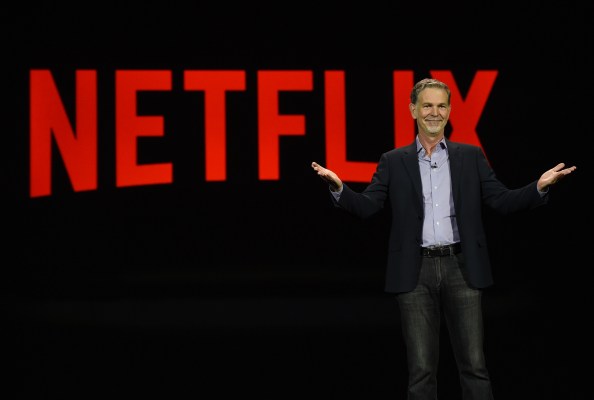Netflix is finally changing its long-held policy around the theatrical release of its original films.
In the past, the streaming service has been willing to release its films in theaters, but it refused to grant those theaters an exclusive release window, which meant that few of them were interested. That, in turn, may have hurt filmmakers’ chances when it came to getting nominated for major awards. (It also prompted the Cannes Film Festival to create a new rule that effectively blocks Netflix films from competing.)
It’s hard to know for certain whether (say) “Beasts of No Nation” or “Okja” or “The Meyerowitz Stories” would have won more awards of they’d made it into more theaters, but it’s worth noting that Amazon does release its films with an exclusive theatrical window, and that’s paid off in some major Oscar wins and a couple of genuine indie hits.
This year, Netflix might have its strongest Oscar contenders yet, particularly with “Roma,” the new film from Alfonso Cuarón, who won an Oscar for directing “Gravity.” The early reviews for “Roma” suggest that a) it may be the best movie of the year, and b) it really should be seen on the big screen.
So the service announced yesterday that “Roma,” along with “The Ballad of Buster Scruggs” (directed by the Coen Brothers) and “Bird Box” (directed by Susanne Bier and starring Sandra Bullock), will get exclusive theatrical runs.
For those wanting to see ROMA on the biggest screen possible, select markets will be able to watch in theaters AND on Netflix. Watch for special theatrical presentations of Alfonso Cuarón’s ROMA, The Ballad of Buster Scruggs from the Coen Brothers, and Bird Box from Susanne Bier.
— Netflix Film (@NetflixFilm) October 31, 2018
Deadline has more details: Basically, each film will roll out in select theaters in major markets a few weeks before their release on Netflix. “Roma,” for example, will open in New York, Los Angeles and Mexico on November 21, with additional engagements starting on November 29, ahead of a Netflix release on December 14.
So we’re not talking about a Marvel- or Star Wars-scale release here, and the theatrical windows are still much shorter than those offered by Amazon or a traditional studio film. Still, it’s a big change for a service whose executives were dismissing the theatrical model just a few months ago as one that “feels more and more disconnected with the population.”
